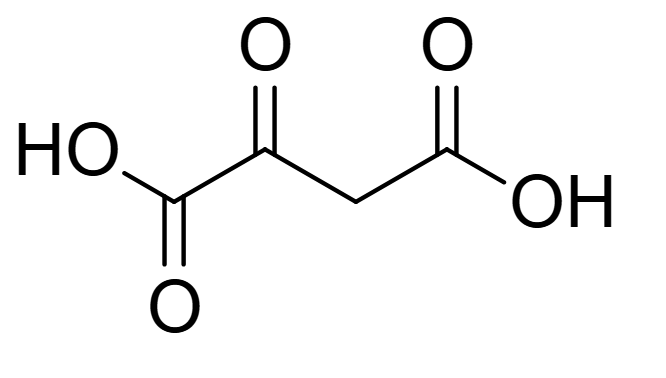Oxaloacetate: A Compound with Benefits Similar to a Ketogenic Diet and Calorie Restriction

Oxaloacetate is a compound involved in what is commonly called the Krebs cycle, tricarboxylic acid cycle or citric acid cycle. The Krebs cycle is a mainstay of the body’s energy production that can produce energy through burning the breakdown products of carbohydrates, fat and protein. As a substrate, oxaloacetate is also important as a precursor for the synthesis of a number of non-essential amino acids (Yu 2020).
Due to its instability, our understanding of the effects of oxaloacetate is more limited as compared to other Krebs cycle components. When oxaloacetate is in solution, its half life is just 14 hours, breaking down into pyruvate, another Krebs cycle constituent. Nevertheless, we still know that oxaloacetate is involved in the regulation of energy production with potentially important ramifications (Fink 2018). When it combines with another compound, acetyl-coenzyme A, it can also act as an alternative energy source.
The regulation of energy by oxaloacetate partially mimics the beneficial effects of calorie restriction. Long-term calorie restriction is known to increase lifespan, while reducing numerous diseases, including heart disease, kidney disease, Alzheimer’s disease, diabetes and cancer (Cash 2009). While the research on oxaloacetate isn’t as robust as calorie restriction, the current evidence suggests somewhat similar benefits.
Oxaloacetate and Diabetes
Type 2 diabetes is a common problem with sugar metabolism that causes elevated blood sugar levels that can cause significant damage over time. Current treatments may slow the progression but don’t reverse the disease.
An older study from 1968 found that oxaloacetate supplementation in type 2 diabetic patients led to a reduction in blood sugar in just over half of patients after six weeks (Yoshikawa 1968). In 2006, a case study was published of a patient with treatment-resistant type 2 diabetes that showed significant improvements in blood sugar levels after the addition of 100 mg per day of oxaloacetate to their standard medications (Cash 2009).
Oxaloacetate and Alzheimer’s Disease
Alzheimer’s disease is a dreaded disease of aging that is poorly addressed through modern medicine. An initial small trial of 100 mg twice daily of oxaloacetate in Alzheimer’s patients showed the compound to be safe, although blood levels were not strongly increased, and no definitive improvements in cognition were found after one month (Swerdlow 2016). It’s worth noting that the study was only intended to explore the safety and dosing of oxaloacetate and not clinical outcomes.
A study using 500 or 1000 mg twice daily for a month has also documented safety in Alzheimer’s patients. While the study did not find cognitive benefits, brain cell glucose uptake improved and glutathione levels, the body’s master antioxidant, were higher in some brain regions (Vidoni 2021). It’s likely that if oxaloacetate is helpful for Alzheimer’s, a longer duration of treatment is needed to have an impact on symptoms due to the extensive brain damage already present.
Animal research also suggests potential, with a study in mice showing increased mitochondrial synthesis (the cellular organelles that specialize in energy production), improved sugar handling, reduced inflammation and increased production of new brain cells (Wilkins 2014). A more recent mouse study in mice with familial Alzheimer’s disease showed decreased brain inflammation and increased brain cell growth factors (Wu 2020). The authors conclude that oxaloacetate may help decrease Alzheimer’s symptoms and could be a “promising therapeutic” for Alzheimer’s disease. Hopefully, longer human trials can determine if the promise of oxaloacetate as a safe treatment for dementia could become a reality.
Conclusion
Oxaloacetate is a metabolite produced during calorie restriction and ketogenic diets. It appears to improve blood sugar metabolism and promotes anti-inflammatory activity and improved energy production in the brain. Due to the compound’s instability, supplementation can be challenging and products claiming to contain oxaloacetate should be approached cautiously. However, if the benefits of oxaloacetate for improving blood sugar handling and dementia can be better documented in humans, the compound could be a breakthrough for helping to treat both diabetes and Alzheimer’s disease.



